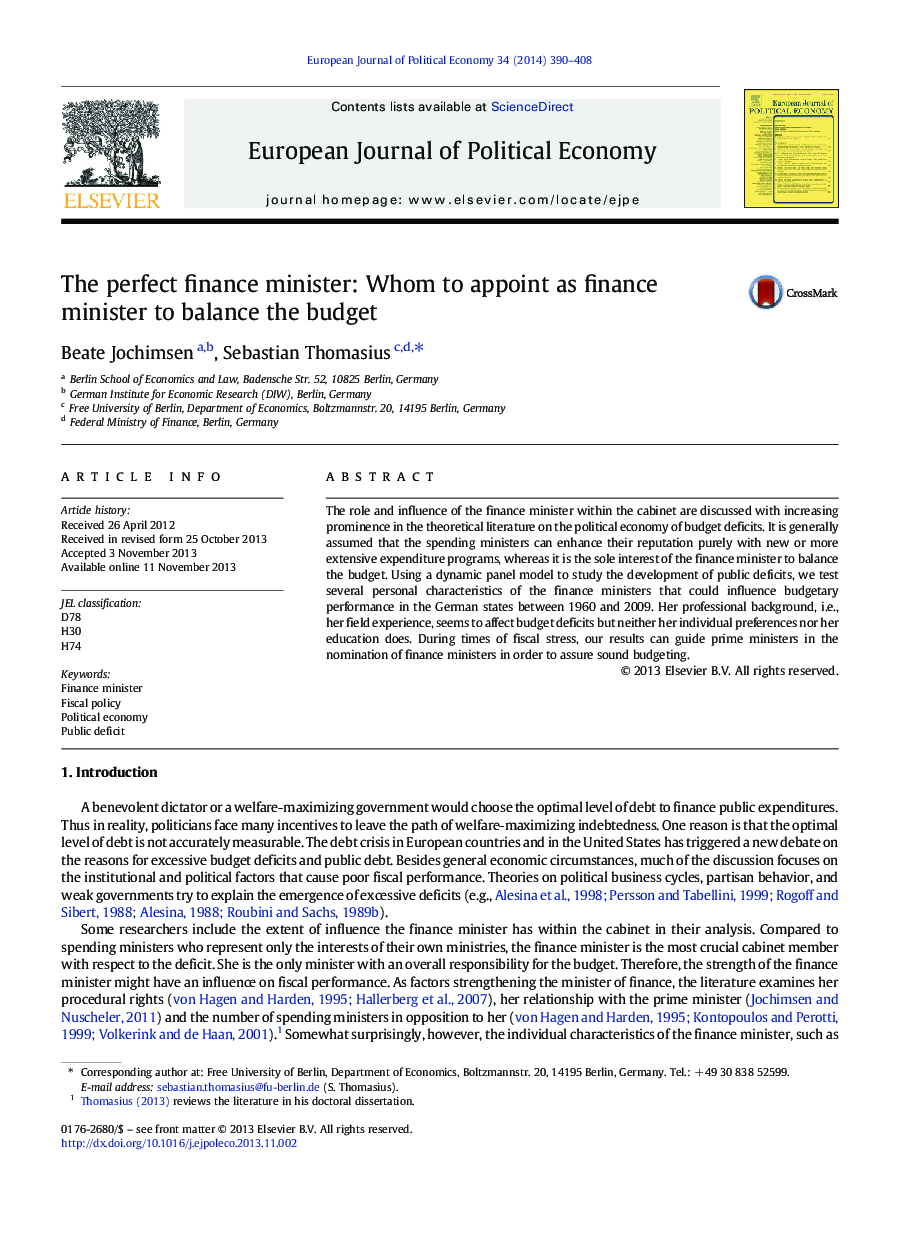| Article ID | Journal | Published Year | Pages | File Type |
|---|---|---|---|---|
| 5068111 | European Journal of Political Economy | 2014 | 19 Pages |
â¢The finance minister wants to balance the budget to raise her utility or prestige.â¢Her success depends on her role and strength within the cabinet.â¢In our setting her strength depends on her personal characteristics and abilities.â¢We analyze German states between 1960 and 2009 using a new and unique data set.â¢We find that relevant professional experience and tenure lower budget deficits.
The role and influence of the finance minister within the cabinet are discussed with increasing prominence in the theoretical literature on the political economy of budget deficits. It is generally assumed that the spending ministers can enhance their reputation purely with new or more extensive expenditure programs, whereas it is the sole interest of the finance minister to balance the budget. Using a dynamic panel model to study the development of public deficits, we test several personal characteristics of the finance ministers that could influence budgetary performance in the German states between 1960 and 2009. Her professional background, i.e., her field experience, seems to affect budget deficits but neither her individual preferences nor her education does. During times of fiscal stress, our results can guide prime ministers in the nomination of finance ministers in order to assure sound budgeting.
